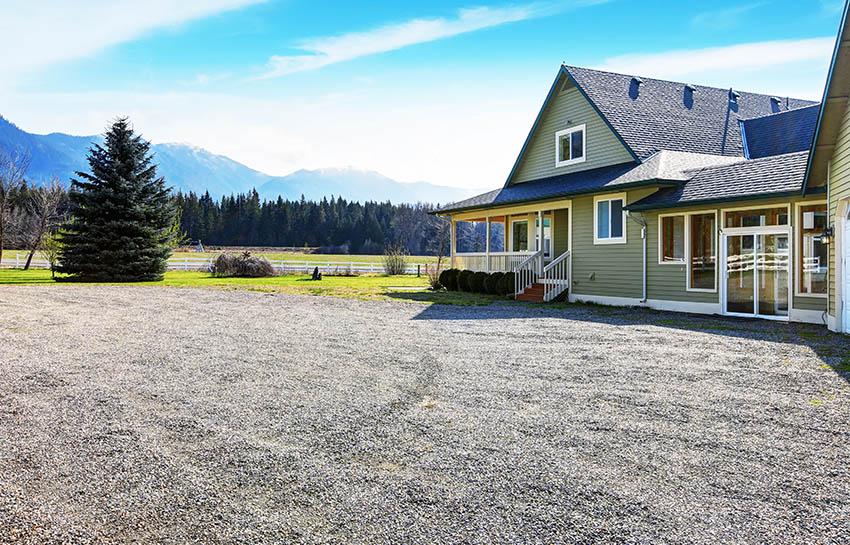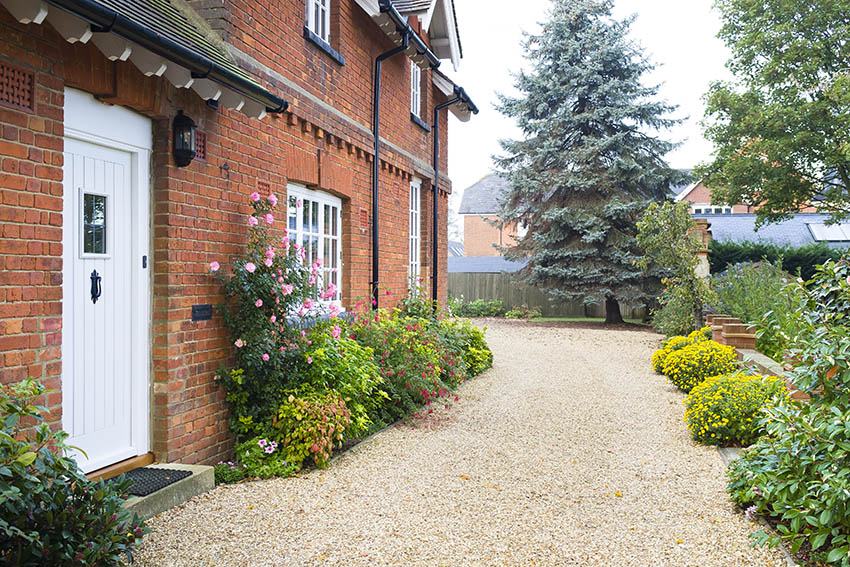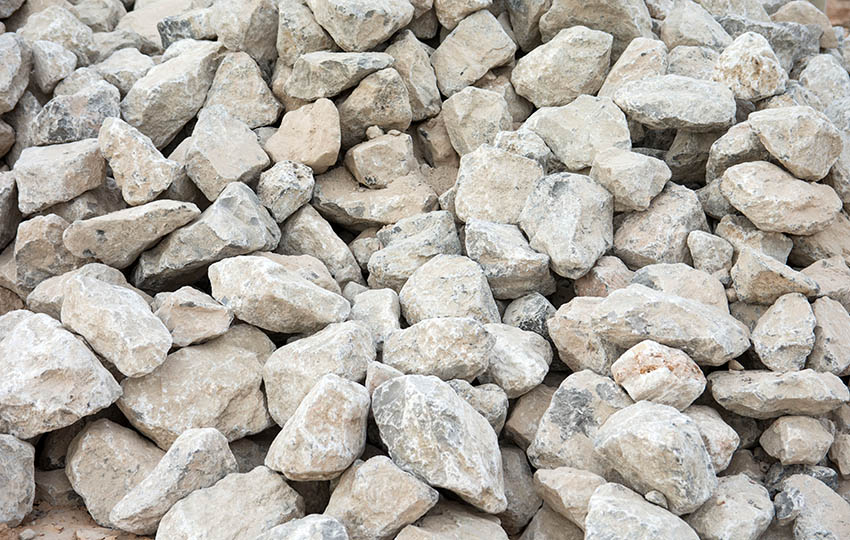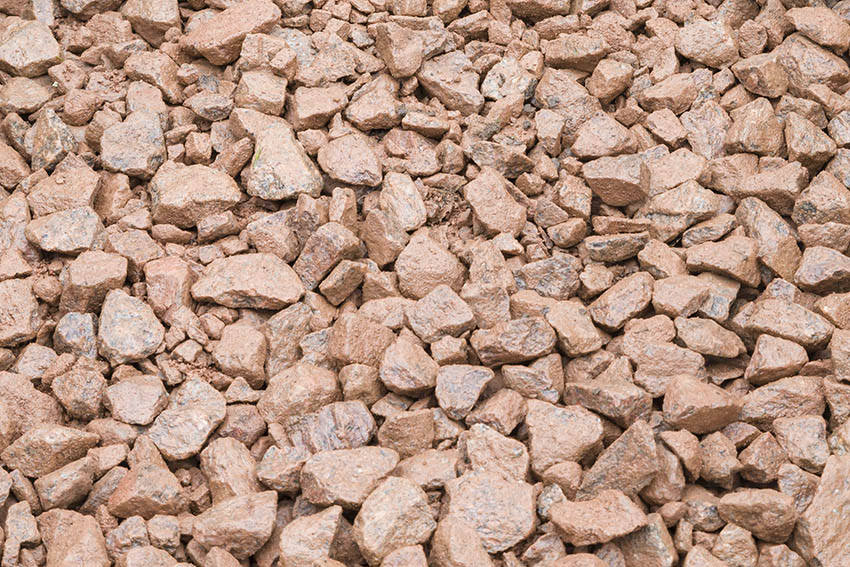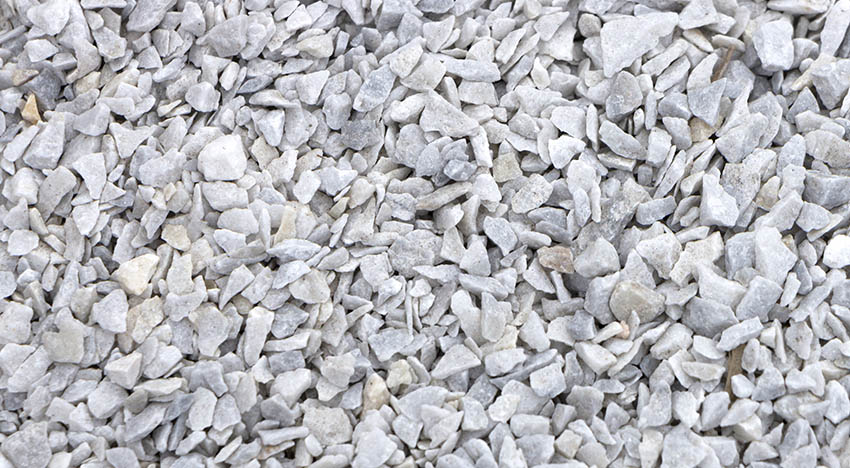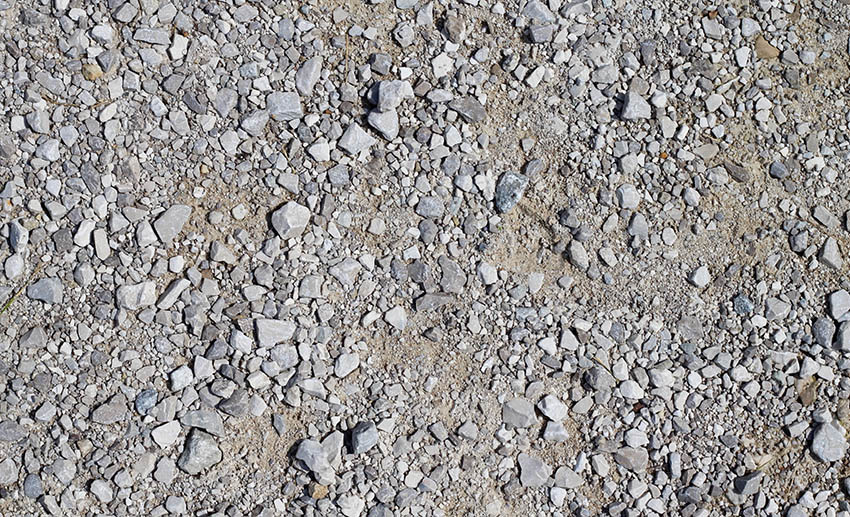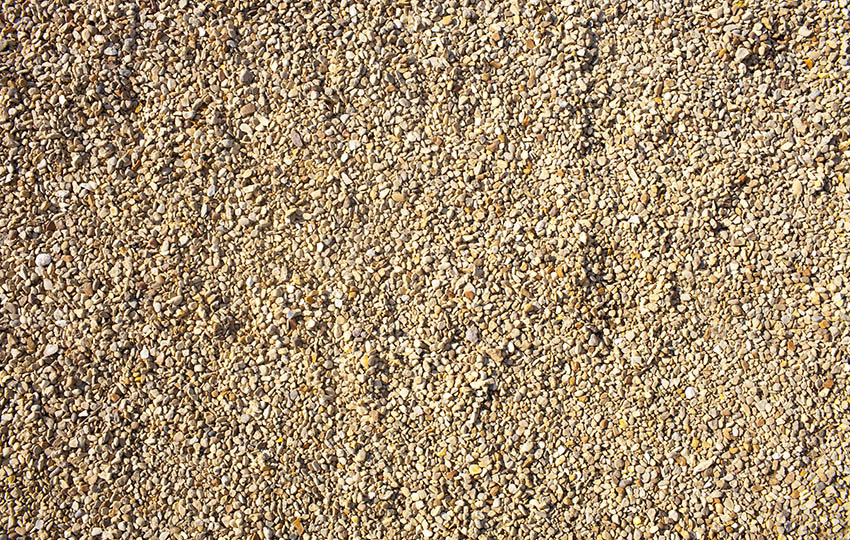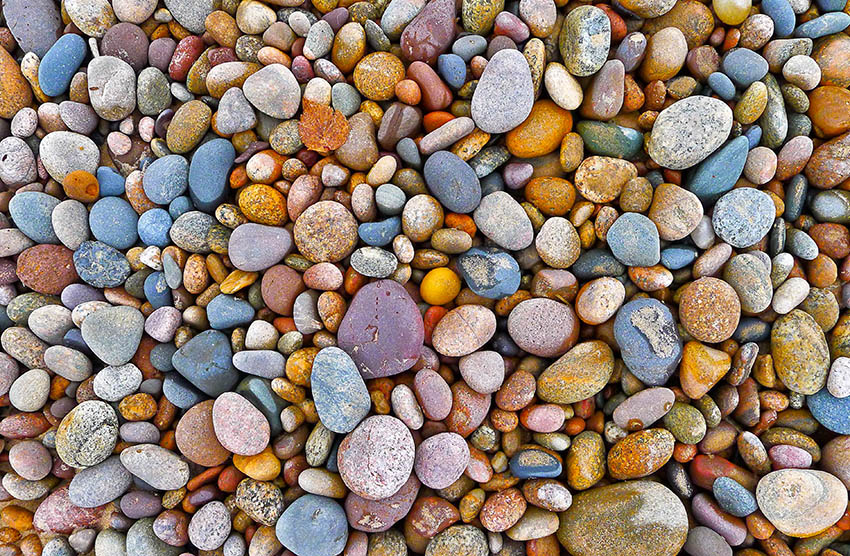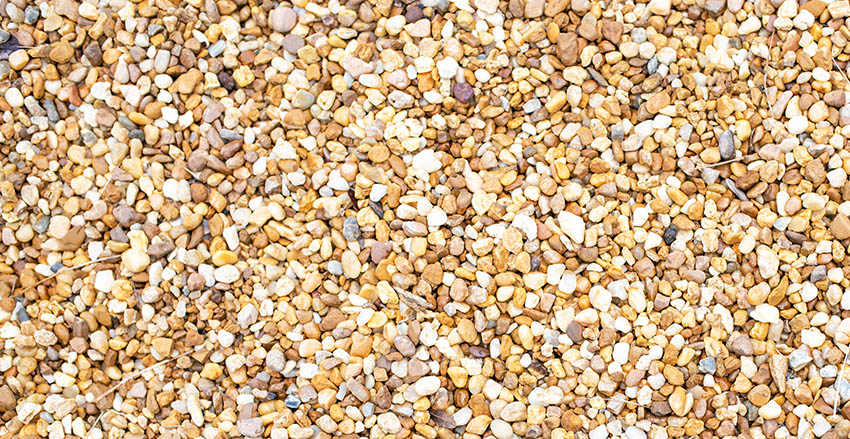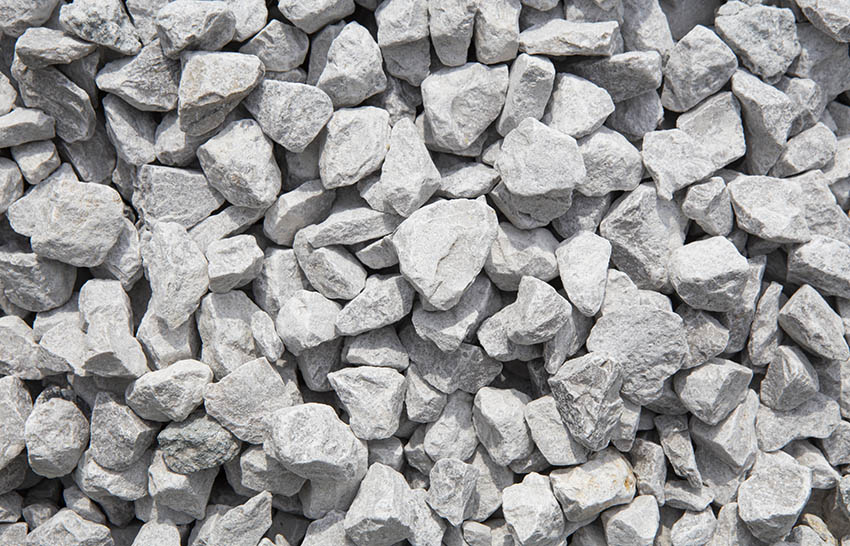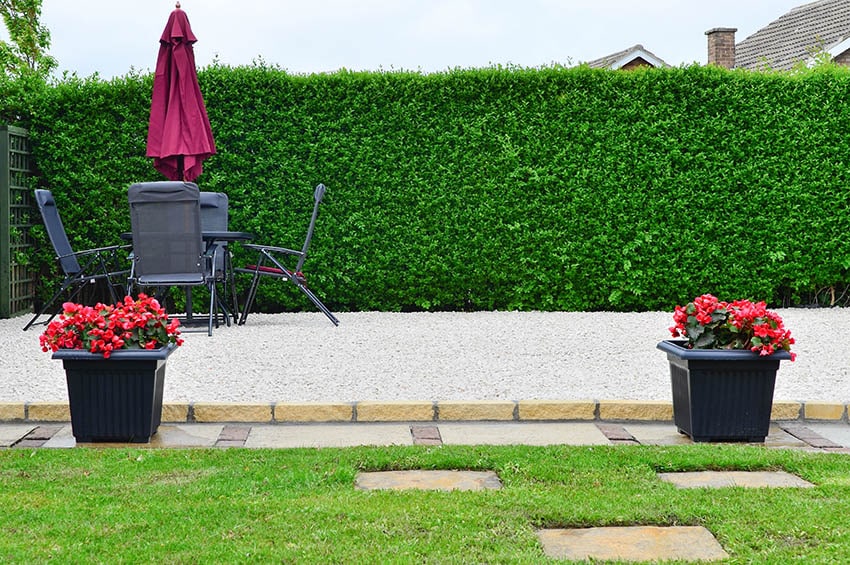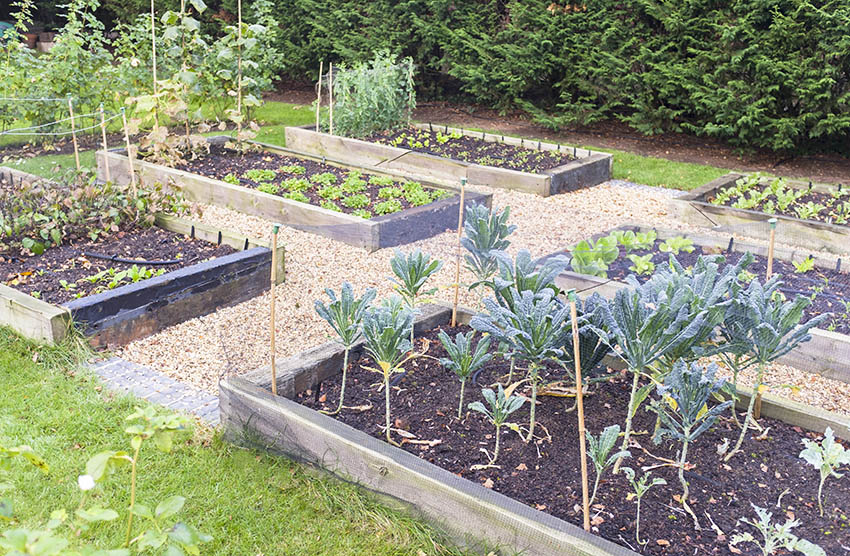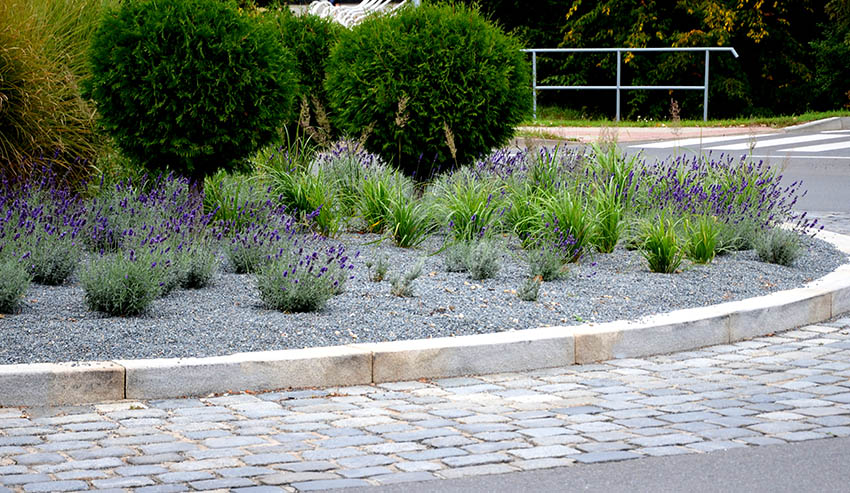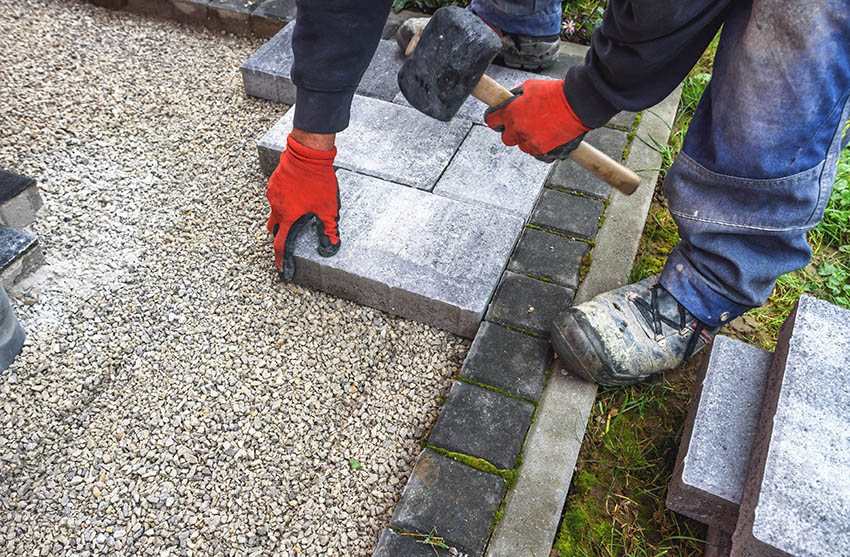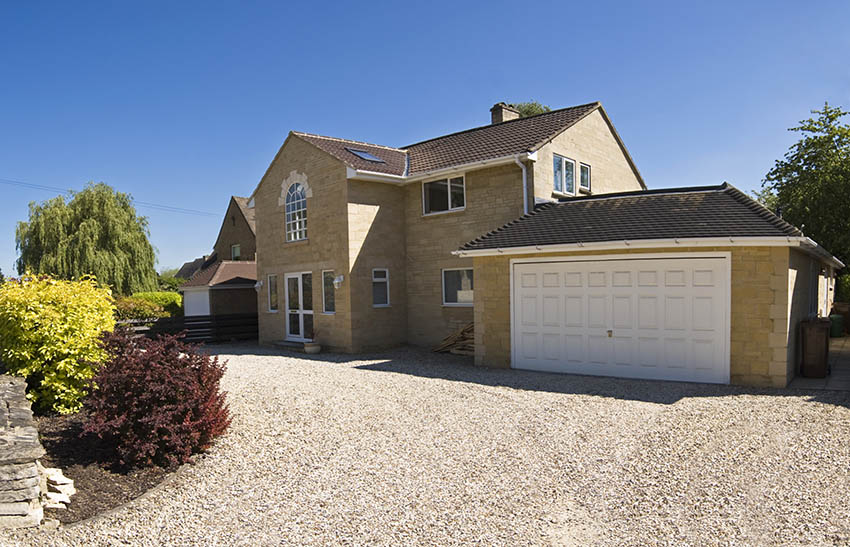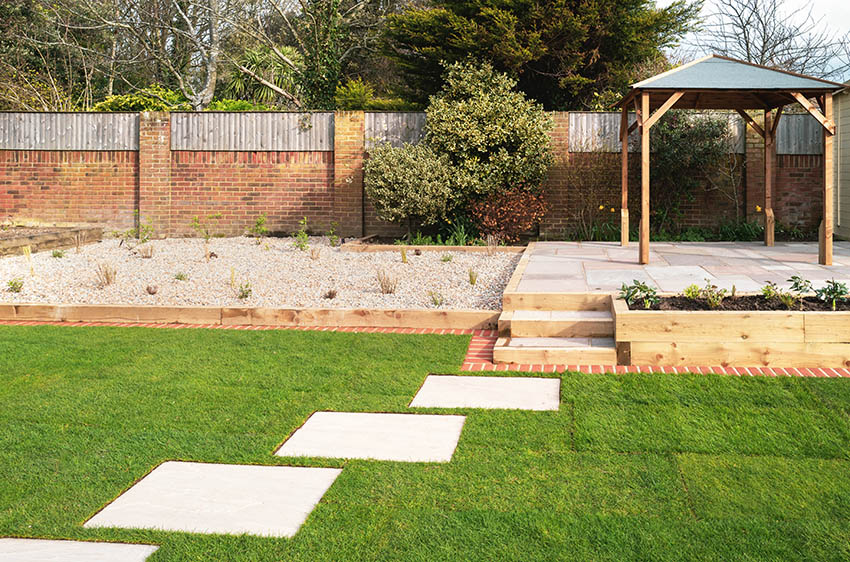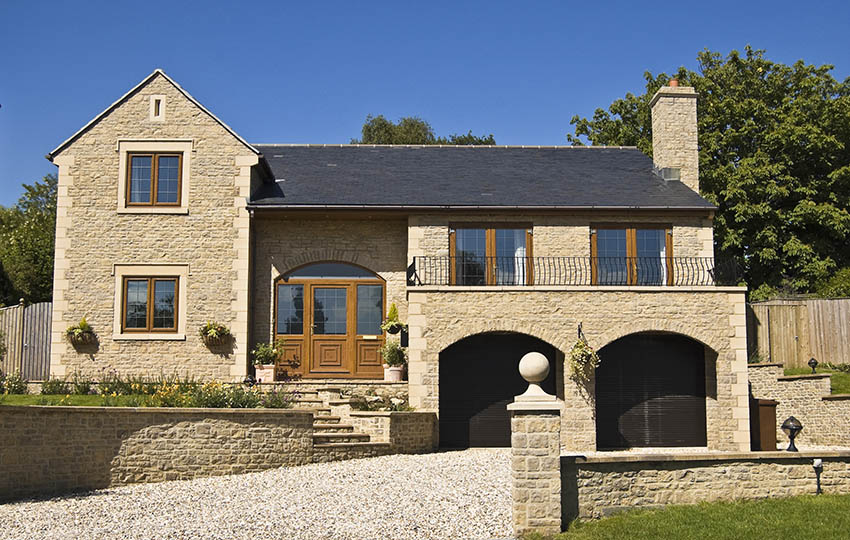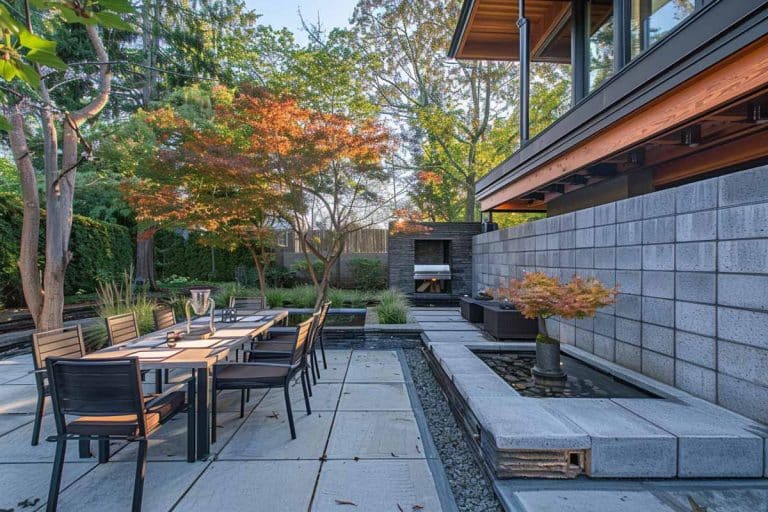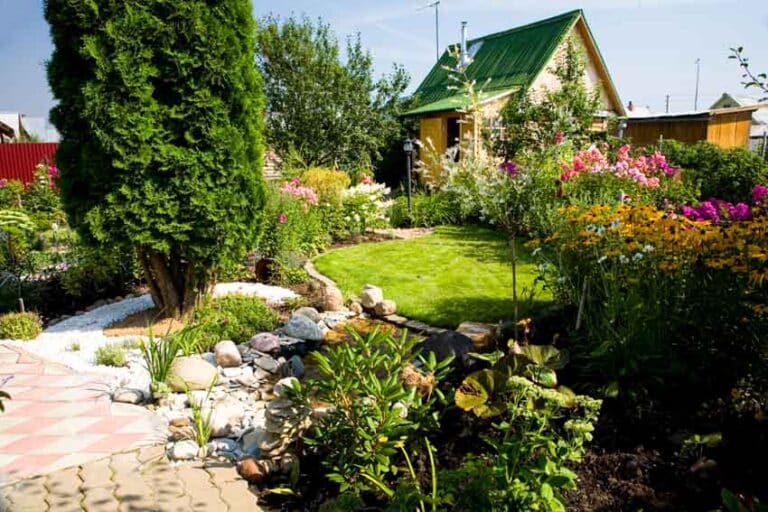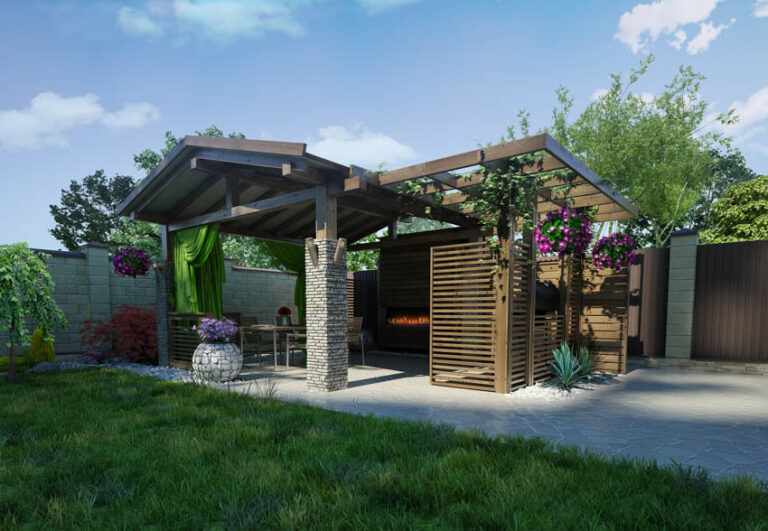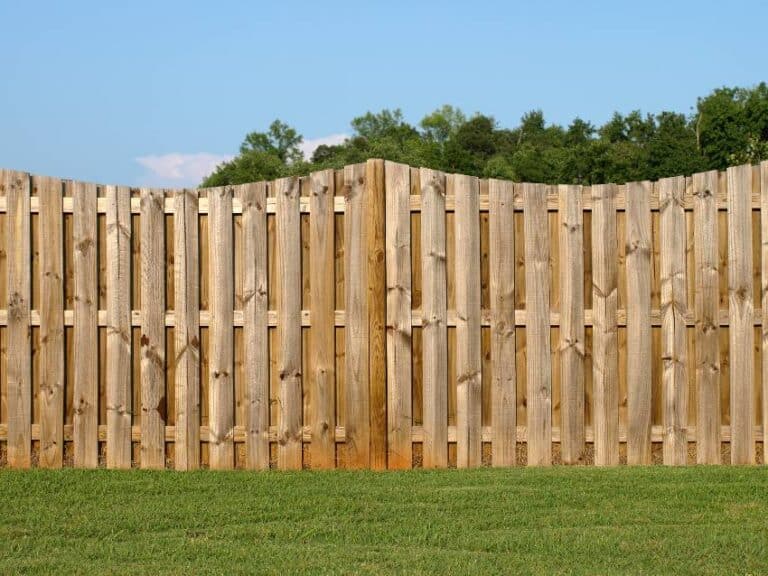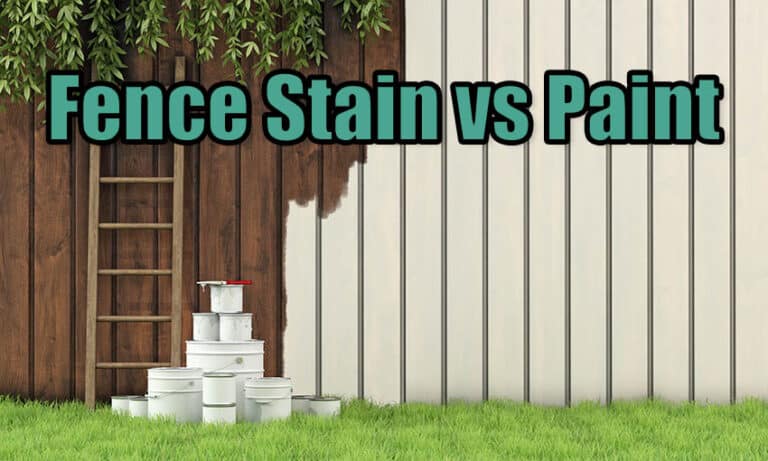9 Top Types of Gravel To Use For Your Projects
Welcome to our types of gravel ultimate buying guide including the different products and which one is best for your home projects.
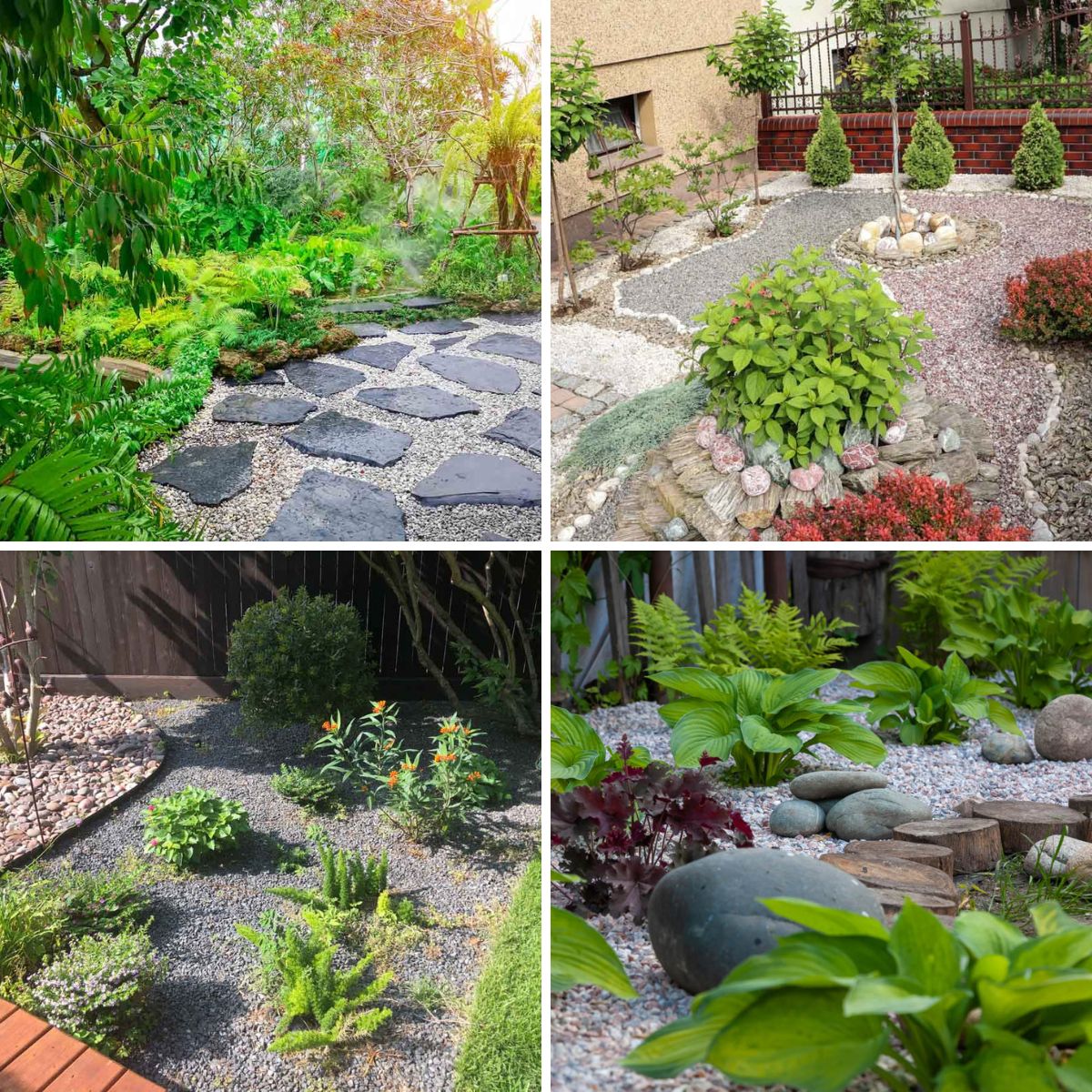
Choosing a gravel for your garden or landscaping project can be challenging. The vast number of choices to consider can be overwhelming. With so many different applications, it’s important to get the right types of gravel, to save money, enhance durability, and have the project looking the best it can.
Quicklook: Different Gravel Types
- Base Gravel #3
- Item #4
- Marble Chips
- Quarry Process
- Jersey Shore Gravel
- River Rock
- Pea Gravel
- #57 Rocks
- Crushed Stone #411
What is Gravel?
Gravel is a simply crushed stone or rock. It is most commonly used as a construction and landscaping material. Deposits of gravel exist in nature where rocks have undergone erosion and weathering; these deposits are called ‘gravel pits.’
Gravel can also be man-made, and this material is referred to as ‘crushed stone’ To artificially create smaller rocks heavy-duty machinery is used to break large rocks into smaller pieces. Almost any rock can be used to make these crushed stones, but the most common rocks are sandstone, limestone, and basalt.
These pieces are sorted and sold according to size. Gravel is a versatile material that has many uses, including erosion and drainage control, landscaping, and driveway creation.
What Are the Different Gravel Materials?
Since gravel is a catch-all name for any type of crushed stone, there are many, many different types, and it isn’t always easy to keep them straight.
For one thing, they have names that sound like classified government projects, such as Item #4, Base Gravel #3, and #57 Crushed Rock. What distinguishes one type from another?
Size, for one thing. Each type of crushed material is associated with a particular size of rock. Jersey Shore gravel, for instance, is usually composed of rocks around ¾” in diameter.
The other determining factor in aggregate type is composition. Some products are made only of rocks, while others have materials such as sand, clay, or stone dust mixed in.
The size and composition of the material will determine what type it is, and what it can appropriately be used for. Read on for descriptions of the most common types and their uses.
Base Gravel #3
As the name suggests, this type is typically used to form a base or foundation for a driveway. Their size (one to two inches in diameter) and shape (irregular) creates a sturdy, non-shifting layer that also provides adequate drainage.
Landscapers typically recommend that loose stone driveways are supported by at least four inches of a base rock like Base Gravel #3. The appearance is irrelevant, as they will be covered by more aesthetically pleasing types of rock.
- Driveways and Road Foundation
- Base Layer for Patios and Paths
- Landscaping and Erosion Control
- Construction Site Prep
- Septic System Leach Fields
- Foundations for Retaining Walls
- Fill Material
Item #4
Item #4 product is a mixture of stones, sand, and clay. Stones are typically described as ‘golf-ball sized’ and are 1 – 2 ½“ in diameter. The sand and clay help this type form a hard-packed surface, making it an ideal middle layer for a driveway.
Smaller stones without sand and clay tend to shift under the heavy weight of a vehicle, so a middle layer of a gravel product like Item #4 is needed to counteract that tendency.
Best uses:
- Driveway Base
- Road/Path Foundations
- Patio/Paver Bases
- Concrete Slab Base
- Landscaping Projects
- Retaining Wall Foundation
- Septic Drain Fields
- Filling and Leveling
Marble Chips
Marble chips are both aesthetically pleasing and serve a utilitarian function. To make marble chips, white marble is crushed into small rocks.
These chips can be used as the top layer in a crushed stone driveway or pathway, and are prized for their crisp white look and the way they sparkle in the sunlight.
A gravel garden can help to minimize maintenance and offers a home for a range of plants that don’t like ‘wet feet’, which can be a problem in gardens with heavy clay soil. – Sustainable Garden Projects, Marian Boswall
Marble chips can also be used in the garden, in place of mulch. Not only will it look beautiful and inhibit weed growth, but it will also discourage insects from finding a home in your plants.
Best uses:
- Decorative Landscaping
- Pathways and Walkways
- Landscape Drainage
- Accents for Pavers and Stepping Stones
- Top Dressing for Potted Plants
- Rock Gardens and Water Features
- Mulch Alternative
- Terrazzo Flooring
Quarry Process
The cheapest gravel available is known by many names. They include quarry process, dense grade aggregate, road stone, and crush & run (sometimes incorrectly written as ‘crusher run’.)
It’s not the most attractive material and has a high percentage of stone dust. The rocks are, at most, ¾” large. This type is typically used as filler when completing excavation or as the base layer for roads.
Best uses:
- Driveway Base
- Road and Pathway Base
- Patio Base
- Filling Potholes
- Sub-Base for Concrete Slabs
- Landscaping Projects
- Construction Site Fill
Jersey Shore Gravel
The signature feature of Jersey Shore is its yellow color, which looks like the sand on the beaches in New Jersey. It is available in ¾” and ⅜” diameters.
Jersey Shore is obtained from rock mines. The rock material under the water in the mines is pumped into a tower, where it is sifted into various sizes.
The versatile and abundant material is very popular for driveways in Northeast America. Jersey Shore is one of the most affordable loose stone options in this region. It is also often used as a replacement for mulch or as a border for gardens to prevent soil erosion.
Best uses:
- Landscaping and Garden Paths:
- Driveways
- Playground Areas
- Drainage Projects
- Flower Bed Accents
- Patio Base
- Erosion Control
River Rock
This type is composed of smooth-surfaced stones. They can be as small as ⅜” or as large as 5” in diameter. In nature, rocks break off of larger formations due to erosion near water.
These smaller pieces of rock are carried downriver by the force of the water, being tumbled and smoothed along the way. Artificial river rock is created by tumbling and polishing stones in machinery.
The color varies based on the color of the original rock. River rock is smooth and comfortable to walk on but can be slippery. Smaller river rock is often used in playgrounds because it has no jagged edges that could injure a child.
Large river rock is popularly used in and around water features, such as ponds, fountains, and waterfalls. Its slippery surface does not lend itself to being used in a driveway.
Best uses:
- Landscaping Borders
- Drainage and French Drains.
- Pathways and Walkways
- Water Features
- Ground Cover
- Erosion Control
- Decorative Accents
- Dry Creek Beds
Pea Gravel
Available in diameters of ⅛ ” to ⅜”, or about the size of a pea, this type of gravel comes in various colors, such as gray, white, tan, and rust-brown. These tiny stones are perfect for filling the area around larger paving stones.
Since pea gravel retains moisture well and inhibits the growth of weeds, some gardeners use it instead of mulch. Lining the outside of your house with a pea gravel border will discourage rodents from burrowing there, as they can’t dig through the stony material.
Like other small stones, this type must be contained by edging or borders, or it will be carried into the rest of your yard by the first heavy rainfall.
Best uses:
- Walkways and Paths
- Low-maintenance Sitting Areas
- Driveways
- Landscaping
- Playgrounds
- Drainage and French Drains.
- Dog Runs
- Around Pools
- Filler for Concrete
- Mulch Alternative
#57 Rocks
The stones included in a load of #57 rocks will be coarse in texture and range from ½” to 1” in diameter. #57 rocks can be used as the base layer for a driveway. These types of rocks drain very efficiently and is often used as bedding for pipes.
Best uses:
- Driveway
- Concrete Aggregate
- Drainage
- Backfill Material
- Landscaping
- Pipe Bedding
- Foundation Material
- Erosion Control
- Railroad Ballast
Crushed Stone #411
When #57 stone is mixed with stone dust, a new product is created called Crushed Stone #411. This workhorse of rock fragments is used as a base for retaining walls, driveways, and even aggregate roads.
Over time, the stone dust settles in between the stones, providing extra stability without compromising drainage.
Gravel Cost
One of the cheapest options available is quarry process, which costs, on average, $0.40 per square foot. At the other end of the price spectrum is marble chips. Expect to pay $2.00 per square foot for this high-end material.
River rock is a little less expensive, averaging $1.50 per square foot. Rock base, including Crushed Stone #57 and Base Rock #3, generally costs around $0.65 per square foot, while pea gravel can be found for $0.60 on average.
Jersey Shore material can cost around $1.80 per square foot, but if you live outside the American northeast, the delivery costs may be prohibitive. A gravel patio design can cost about $5 per foot when considering the price of basic crushed stone and installation costs.
A small 200 square foot patio sitting area would cost about $1000. This price can fluctuate based on the types, your location, and local labor costs.
How Much Does a Dump Truckload of Gravel Cost?
Dump trucks can hold between 13 and 25 tons (depending on the size/weight of the rocks), which is about 14 cubic yards. Transport costs are often reduced if you are ordering a loose load of crushed rock to be delivered in a dump truck.
A dump truckload of quarry process should cost about $150, while a dump truckload of marble chips should cost around $800.
If you’re ordering river rock by the dump truckload, expect to pay around $550.
For a dump truckload of Jersey Shore stones, your price should be in the range of $700. The cost per dump truckload of rock base is approximately $250.
Best Applications for Gravel
There are many different applications for gravel for the home. Here are the most popular options.
Gardens
While it might surprise you to hear it, loose stones are an excellent medium for plants that grow in rocky soil. Gravel backyard gardens are common in Mediterranean climates because they can withstand both the harsh heat of summer and cooler, dry winters.
Gravel protects plants from pests and inhibits weed growth, making it popular with low-maintenance gardeners. It also helps stop soil erosion, so landscapers commonly use it for edging flowerbeds or garden paths. Since it is low maintenance, crushed rock makes up a large part of desert landscaping.
Construction
Gravel is known in the construction industry as a type of aggregate. An aggregate is a building material composed of particulates.
Other examples of aggregates include sand, recycled concrete, and slag (a byproduct of smelted metal.)
When excavation has been completed, aggregates like crushed rock are used to partially fill in the hole before covering it with the loosened soil.
This is called ‘backfilling’, and without it, the ground over the excavated area won’t be stable, since it has been loosened by the excavation process and is no longer compact.
Driveways and Paths
Concrete and asphalt driveways are impermeable, meaning water can’t reach the ground underneath. This often leads to pooling at the sides or end of the driveway, and during heavy rainfall, can even contribute to flooding.
It facilitates the return of rainwater to the ground in an efficient way. It can be used as a border between your lawn and driveway, to prevent pooling and erosion, or the entire driveway can be made out of rock fragments.
Paths can also be made out of loose stones combined with the use of paving stones, which can help fill in the gaps between stones for a more level walking surface.
How Much Gravel Do I Need
Gravel is sold by weight. The amount you need depends on the project you’re completing. For example, a driveway requires a layer of material to be 12 inches deep, while a simple garden path only requires four.
The best way to calculate how much you need is to ask your supplier. They may even have a calculator available on their website that can do the math for you.
Often, these calculators can tell you how many bags of material you will need to buy, the total weight of the rocks in tons, and even give you an estimate of delivery. The calculators and bag sizes vary a bit from one retailer to another.
The typical driveway is 16 feet wide and 40 feet long and needs 12 inches of material. According to several landscape material suppliers, 32 tons of loose stones would be needed to finish the job.
Note that for large orders (more than 10 tons) it is sometimes more cost-effective to order a ‘loose load’. This is aggregate that gets delivered in a dump truck rather than individual bags. Make sure you ask questions about the method of delivery and get an estimate or quote beforehand to avoid any unpleasant surprises.
How Many Yards in a Ton of Gravel
The rule of thumb for ordering is that one ton will cover, on average, 70 square feet (~23 square yards). This assumes the layer of material you’re pouring is about three inches deep.
If you’re pouring a shallow layer of stones, such as one inch deep, you might be able to cover 210 square feet (70 square yards).
How Much Does a Yard of Gravel Weigh
Rock suppliers often quantify the amount of material being delivered using cubic yards. A cubic yard is three feet high, three feet wide, and three feet deep.
It weighs about 1 ton or 2,200 pounds. Spread three inches deep, this amount of crushed rock would cover approximately 100 square feet.
Many companies require a minimum order of 5 tons from their customers without incurring an extra delivery fee. Ensure that you buy the right amount for your property the first time to avoid extra delivery service fees.
What Gravel is Best for a Driveway?
Gravel driveways require three different types of rocks in order to support heavy vehicles without too much shifting. First, a four-inch foundation of largish, irregularly sized rocks is laid down.
The three to four-inch middle layer is made of golf ball sized rocks mixed into stone dust, sand, or clay. The small grains of these materials fill in the gaps between stones, making this layer sturdy and unlikely to shift.
On top of the middle layer (sometimes called the ‘fine’ layer) is the ‘finish’ layer. This is also four inches deep, and the stones are no bigger than marbles.
Based on popular opinion, the best stones for the finish layer of a driveway are Pea Gravel and Jersey Shore. These are two popular options for a gravel driveway as they are relatively inexpensive and great for walking and driving.
What is Type 2 Gravel?
Type 2 is a combination of small stones (no more than 1.5” in diameter) and stone dust typically used in the construction industry. It is not used as a decorative or landscaping material.
Because it contains stone dust, Type 2 will settle and become more compact than varieties that do not include dust.
The best use for Type 2 is filling in holes. It can be used by road crews to fill in potholes. Construction crews use Type 2 rocks to fill in trenches and holes left behind after excavation.
If you are interested in creating your own gravel ideas, there are a variety of landscaping software design programs that can help you visualize your own projects. These programs provide many different types of materials to help you customize your own design.

